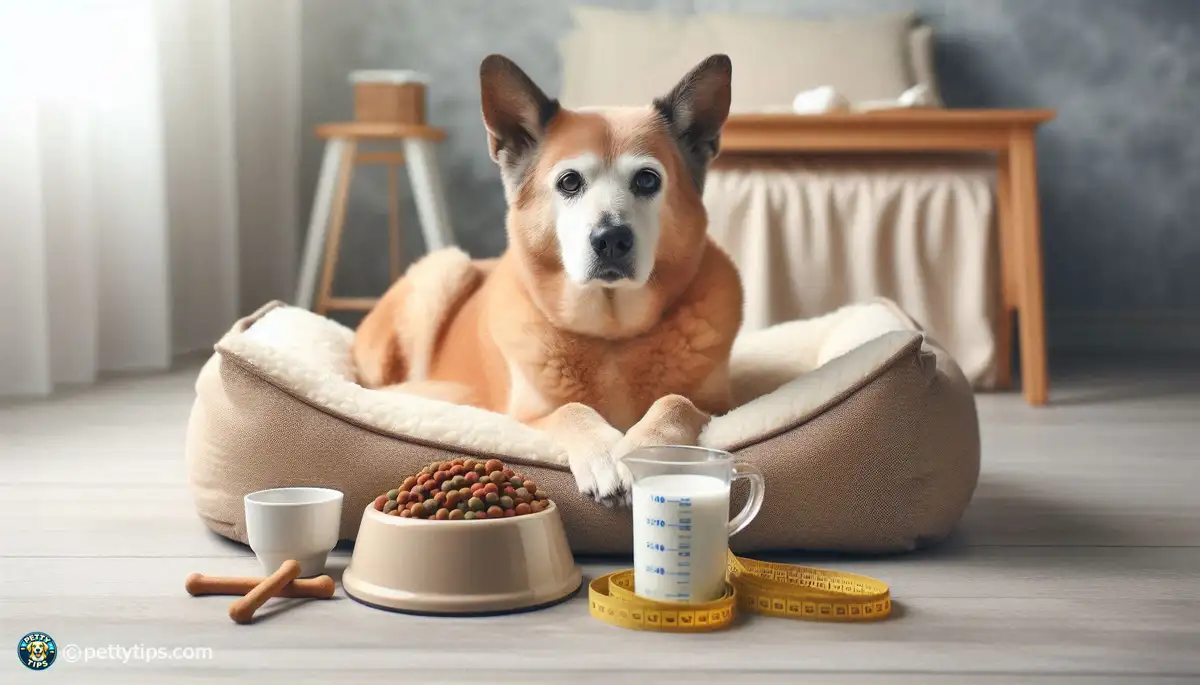- Home
- Pet Nutrition
- Managing Weight in Senior Pets Through Nutrition
Managing Weight in Senior Pets Through Nutrition

Aging and Weight: The Connection
As our beloved pets age, their nutritional needs change, and so does their metabolism. Just like in humans, maintaining a healthy weight becomes increasingly important for their overall well-being. senior pets may experience a slowdown in metabolism and a decrease in activity levels, which can lead to weight gain if not managed properly. Extra pounds can put strain on their joints, exacerbate existing health conditions, and shorten their lifespan. Therefore, understanding the role of nutrition in managing weight becomes crucial in ensuring our senior pets lead happy and healthy lives.
The Role of Nutrition in Senior Pet Health
proper nutrition is the cornerstone of good health at any age, but it becomes especially critical as pets enter their senior years. Senior-specific pet foods are formulated to meet the unique nutritional needs of aging pets, including controlled calorie content, joint support, and increased levels of certain nutrients like antioxidants and omega-3 fatty acids. These specialized diets aim to support weight management, promote muscle maintenance, and boost overall vitality in senior pets. By providing a well-balanced diet tailored to their age and health status, pet parents can help their furry companions maintain a healthy weight and enjoy a better quality of life.
Common Nutritional Challenges in Senior Pets
Despite our best efforts, senior pets may encounter various nutritional challenges that can affect their weight management journey. Issues such as decreased appetite, dental problems, digestive issues, and certain medical conditions can impact their ability to maintain a healthy weight. Additionally, older pets may have specific dietary requirements or restrictions due to age-related health concerns. Addressing these challenges requires a tailored approach that takes into account their individual needs and preferences, ensuring they receive the necessary nutrients while managing their weight effectively.
Key Nutritional Considerations for Weight Management in Senior Pets
Understanding Caloric Needs
One of the fundamental aspects of managing weight in senior pets is understanding their caloric requirements. As pets age, their metabolism may slow down, leading to reduced energy expenditure. Therefore, it's essential to adjust their calorie intake accordingly to prevent excess weight gain. However, it's equally important not to underfeed them, as inadequate nutrition can lead to muscle loss and other health issues. Consulting with a veterinarian to determine the appropriate caloric intake based on factors such as age, size, activity level, and health status is crucial for maintaining optimal weight in senior pets.
Choosing the Right Type of Food
Selecting the right type of food plays a significant role in managing weight in senior pets. Opting for high-quality, senior-specific diets that are specially formulated for weight management can provide essential nutrients while controlling calorie intake. These diets often contain higher levels of protein to support muscle mass, as well as added ingredients like fiber to promote satiety and regulate digestion. Additionally, pet parents should consider the consistency of the food, especially for pets with dental issues or chewing difficulties, opting for softer textures or wet food options may be more suitable.
Incorporating Nutritional Supplements
In some cases, incorporating nutritional supplements into a senior pet's diet can help support weight management efforts. Supplements such as glucosamine and chondroitin sulfate can aid in joint health and mobility, which is particularly beneficial for overweight or obese senior pets with arthritis or other joint issues. Similarly, omega-3 fatty acids can help reduce inflammation and support overall heart and joint health. However, it's essential to consult with a veterinarian before adding any supplements to ensure they are safe and appropriate for your pet's individual needs.
Implementing a Balanced Feeding Routine for Senior Pets
Establishing Regular Feeding Times
Creating a consistent feeding schedule is essential for managing weight in senior pets. By establishing regular mealtimes, pet parents can help regulate their pet's appetite and prevent overeating. Feeding smaller, more frequent meals throughout the day can also help keep senior pets satisfied without overloading their digestive system or causing spikes in blood sugar levels. Additionally, incorporating interactive feeding toys or puzzles can stimulate their minds and encourage physical activity, which can aid in weight management.
Monitoring Portion Sizes
Monitoring portion sizes is crucial for controlling calorie intake and preventing weight gain in senior pets. Measuring out the appropriate amount of food according to their nutritional needs and adjusting portions based on their activity level and weight management goals is essential. Avoiding free-feeding or leaving food out all day can help prevent overeating and promote healthier eating habits. If unsure about portion sizes or feeding guidelines, consulting with a veterinarian or a pet nutritionist can provide valuable guidance tailored to your pet's specific requirements.
Encouraging Regular Exercise
regular exercise is an integral part of managing weight and promoting overall health in senior pets. While they may not have the same energy levels as their younger counterparts, incorporating gentle activities like short walks, interactive play sessions, or low-impact exercises can help keep them active and maintain muscle mass. It's essential to choose activities that are suitable for their age, fitness level, and any existing health conditions. Additionally, spending quality time engaging in physical activities with your senior pet strengthens the bond between pet and owner while keeping them happy and healthy.
